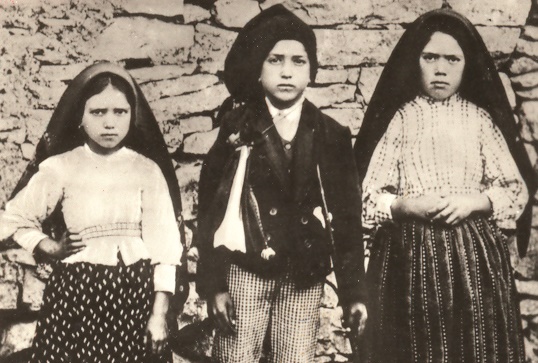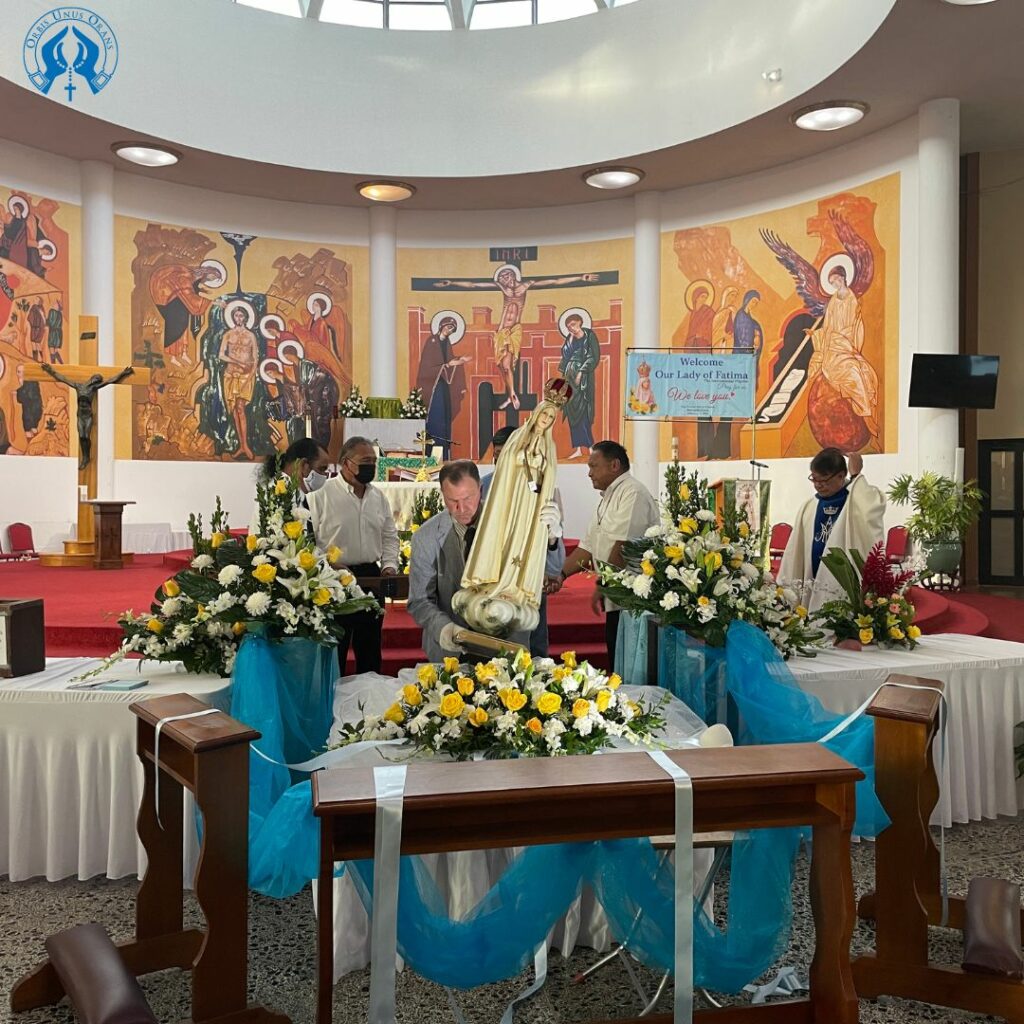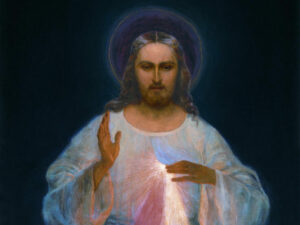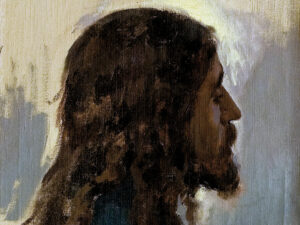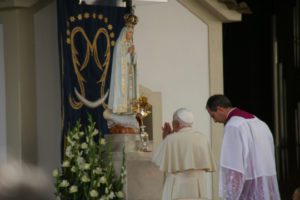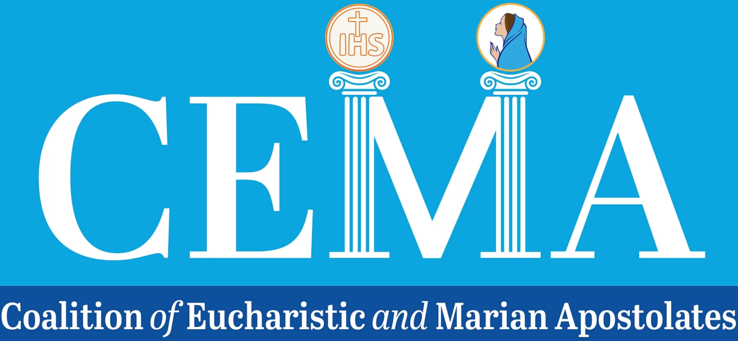By David M. Carollo –


Human nature directs us to seek strong leadership. We are created with certain gifts. These vary from person to person. People of integrity look to those who possess what we as individuals lack in ourselves. Each according to his gifts.
Leaders lead by example and lift those whom they lead; not with a desire to lord over them, but with a desire to help them be better people. Whether a person runs a country, a large or small company or an apostolate, such as the World Apostolate of Fatima, these traits are necessary to bring those you lead to a higher calling. I have always said that if I am not working to bring up strong successors, I am not fulfilling my mission of leadership. Leaving an entity better than you find it should be the goal of all who assume leadership roles. The common good of the mission and of the people executing it must motivate leaders or they fail to fulfill their charge.
We, as a society create the leaders that we have. We have the political and religious leaders that we deserve, and as a society we form them to be good or bad. Politicians and others who lead through the prism of political expediency, forfeit their just right to lead. Every despot that has ruled throughout history has justified their actions by believing, to some degree, that they are acting in the common good. Leaders also need to understand that they can only fulfill their commission properly by being open to corrections that are offered.
I had the pleasure to meet author and speaker Alexandre Havard in Moscow in 2008. Later I met him again when he was on a speaking tour in the United States. He runs the Virtuous Leadership Institute. His classic book Virtuous Leadership lays out the traits of a strong leader. The defining characteristic is magnanimity, which is defined as loftiness of spirit, enabling one to bear trouble calmly, to disdain meanness and pettiness, and to display a noble generosity. Forgiveness and the focus to look beyond hurt is a sign of magnanimity. Striving to help those you lead excel in mission is a necessary requirement of a just leader.
Christ did not stay on earth to lead the ship of Church. He could have. Rather He chose imperfect individuals to strive for perfection and lead others to do the same. Our life’s work is to present a patchwork of imperfect efforts which will become part of the perfect quilt in eternity. Our Lord reprimanded the Apostles when they debated who was the greatest among them. He washed their feet to show that the master needed to be the servant of all. Great leaders lead by service.
One must put aside the past, no matter how painful our past actions seem, and very likely are, and focus on becoming perfect. We must also forgive hurts and keep in mind that the eternal good of all is the only just goal to strive for. First, we must forgive ourselves. St. Peter wept bitterly after denying Our Lord during His passion. We also deny Him every time that we sin, especially mortally. Peter put aside his imperfect actions and became a better man. Judas despaired after his betrayal and lost his destiny. The main difference in these two was repentance.
The American psyche tells us that we are masters of our own destiny. Many forget however that we are a nation founded on the principles found in the Ten Commandments. They are the guidelines that keep us on track with natural law and in sync with God.
“Unless the Lord builds the house, those who build it labor in vain.” (Ps 127:1)
Great leaders understand this. We have lost site of the reality that there are absolutes that we cannot waiver from. When Pope Benedict XV lamented that World War I was the suicide of Christian Europe, he was not necessarily speaking out of an affection for the ruling monarchs, but for the rule of law in a Christian vision that was the foundation of society. The “dictatorship of relativism” that Pope Emeritus Benedict XVI defined comes from the denial of this basic truth. Even in America we have a monarch if we will follow it. The founders looked to scripture when formulating the Declaration of Independence and the Constitution. No human being can establish truth. Pontius Pilate asked, “What is truth,” while speaking with Our Lord, Truth Incarnate.
Throughout history, the Catholic Church has produced noble leaders. In this time God is raising up such leaders who will correct the ills of society. The late Cardinal Francis George stated, “I expect to die in bed, my successor will die in prison and his successor will die a martyr in the public square. His successor will then pick up the shards of a ruined society and slowly help rebuild civilization, as the Church has done so often in human history.” The leaders that will fulfill this call will be brought up from the ruins of the day.
Christ provided the greatest model of proper leadership, becoming the servant of the servants. True leadership is found in those who give all for others. No greater love exists than to lay down one’s life for another. Christ did just that and many great saints did the same, giving either their physical lives or the work of their lives in sacrificial service.
Often, we find ourselves in positions, especially in the Church or apostolates, because God wants to purify us of our own personal faults that come to light and lead us to a sanctification for the benefit of the work we do. A good leader is meek and humble, willing to look at his or her shortfalls and correct them for the sake of the organization and its work. Listening is another trait of a good leader, and the ability to take advice from others.
Are you willing to offer your lives for others, Our Lady asks us through the child seers of Fatima? She wants us to say ‘yes’ to her requests. This request was made of those who lead from the highest posts or engage in menial tasks. By being willing to be servants of others we learn to be leaders. Selflessness is the trait that is necessary for proper leadership. Let us pray fervently that those who lead us do it in the spirit of giving.
God bless you and Mary keep you in her Immaculate Heart.
David M. Carollo is the Executive Director of the World Apostolate of Fatima USA/Blue Army Shrine of Our Lady of Fatima. He wrote this for his Voice of Fatima e-newsletter.


